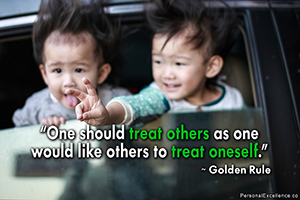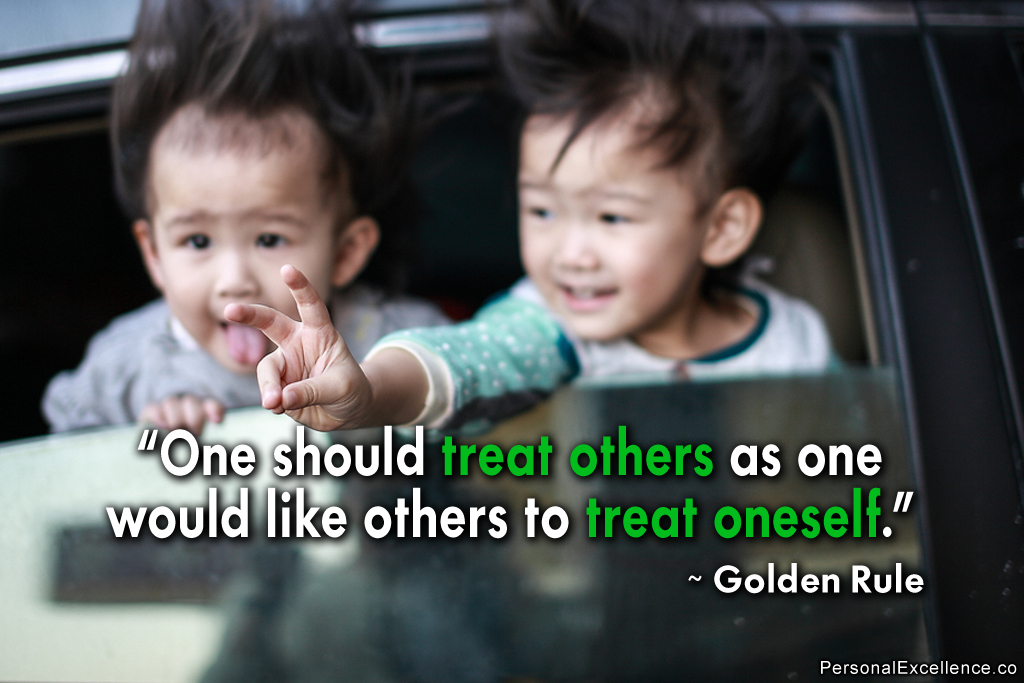This is part 3 of a 5-part series on anger where I share my history with anger, how to let go of anger, and how to deal with angry people. If you are new to this series, read Part 1: Growing Up in a Household of Anger and Part 2: The Damaging Effects of Anger first.

How I Started Working Through My Anger
While I’ve made the decision to let go of anger, anger resolution is a process, rather than a binary event, as we are talking about anger that has been built up since childhood.
Over the years, I’ve taken conscious steps to address my anger within. Here, I share the 6 steps that I have been taking to dissolve my anger permanently. You may find them useful for your situation as well.
1) Being Conscious of My Anger
After becoming aware of anger as an issue, I began to work on being conscious of it. I grew from being 100% unconscious of my anger, to being aware of my state of being and my triggers.
Firstly, I became aware of moments when I was angry or annoyed. Secondly, I stopped thinking of moments of anger or irritation as “normal” — I started to see them as what they are, i.e. anger coming from within me vs. the event. I also started to recognize specific things that trigger me, i.e. my anger triggers.
Having developed consciousness of my anger, this then leads to Step 2.
2) Understanding the Source of the Anger
After realizing that my anger was never external; it was internal, I focused on understanding the true source of my anger every time I got angry, rather than seeking a solution in the external world (which never resolved my anger anyway).
I did that by using the root cause exercise, where I kept asking myself “Why am I angry? Why does this make me angry? Why? Why? Why?” to get to the root of my anger.
Example: Irritation from Kids’ Screams or Cries
For as long as I could remember (up until I began healing this issue), I would be ticked whenever I heard kids screaming (at the top of their lungs) or crying. Such screams and cries are very frequent occurrences in my neighborhood.
Whenever I heard them, it would feel like a siren went off in my head. I would feel like ripping a piece of paper to shreds or hitting someone with an object. I wouldn’t be able to do anything constructive because I would be so intensely annoyed by the screams. I would feel incapacitated.
I used to deal with this annoyance by (a) shutting out the noise, (b) changing to a quieter environment, or (c) blasting music to block out the screams. The methods would work to varying degrees, but were merely short-term measures. As soon I heard the screams or cries again, I would feel frustrated all over again.
After realizing that anger isn’t external but internal, I then took a different tack—I dug into myself to understand why I would always be so pissed off by the screams and cries of kids and babies.
Root Cause #1: Anger at My Helplessness
(Blue = Answers from my subconsciousness.)
- “Why am I angry?”
- I’m angry because these kids just keep crying over and over!
- “Why am I angry with them crying? What’s wrong with that?”
- I hate the fact that they are so helpless. They can’t do anything. They are good-for-nothings.
- “Is it their fault that they are helpless? They are just babies and kids!”
- I know… I just can’t stand helplessness.
- “What is the real problem here?”
- Seeing their helplessness reminds me of my helplessness. It reminds me of how I used to be helpless as a child, trapped in the middle of my parents’ arguments. It reminds me of how I continue to be helpless today, surrounding the state of my family and the animosity my family members have towards each other.
I felt a “thud” in my heart when I heard that from my subconsciousness. I had been reacting in anger all this while to my own helplessness. I had been so pissed off at the kids’ cries and screams because they reminded me of my own helplessness in my past and in my present life.
Root Cause #2: Childhood Resentment of My Parents
Here is another set of answers I got from doing the exercise in another setting.
- “Why am I angry?”
- Because the kids are really freaking noisy! Why are they screaming at the top of their lungs like that?
- “Why am I angry at that? They are kids—of course they are going to scream without restraint.”
- Because they are disrupting my peace and quiet!
- “Why is it so important to have my peace and quiet?”
- Because I was never able to get my peace and quiet when I was young. All I want is just some privacy and quiet time with myself today, as an adult. Can’t I get that?
- “…What am I really angry at here?”
- I’m angry at my parents for taking away my peace and quiet when I was young. I’m angry at them for taking away my childhood from me.
Wow, I thought. It was finally starting to make sense. I had been so angry at noise disruptions all this while, since I could remember, because my head was still filled with the yelling and shouting of my parents from when I was young. That was why even the slightest noise would irk me. This was why my ears would be so sensitive to even the littlest of sounds.
I wasn’t really angry at the kids for “taking away my peace and quiet.” I was really reacting from my childhood anger at my parents for taking away my peace and quiet when I was a child. This was why my reaction to the screams of kids would be so violent—I was displaying compounded anger from since young.
Root Cause #3: Anger at My Lack of Consideration for Others
And finally, the last set of answers:
- “Why am I angry?”
- Because these kids are being so inconsiderate. They are just screaming without considering others’ need for privacy!
- “Why am I angry about that?”
- Because inconsiderate people have no regard for other people. They are among the worst kind of people to be around.
- “Why am I angry about that?”
- Because it reminds me of how I can be very inconsiderate of others’ needs. It’s something I hate about myself. I wish to be more mindful of others needs and never hurt or implicate other people because of my callousness or insensitivity.
Rounding Up
Ah, ah, and ah. As it turned out, I was never really angry at the kids or the babies. My anger at them was an expression of my hidden anger at myself, my parents, and my past.
No wonder I would react so violently whenever there was a kid screaming or crying. It wasn’t the kid’s screaming or crying I was reacting to per se. It was my past and my inner issues that I was reacting to.
(Read more about the relationship between our annoyances with ourselves and our annoyances with others in Day 22: Mirror an Annoyance of Be a Better Me in 30 Days.)
So nowadays, every time I experience a hint of anger, I would do this self-questioning exercise. Each time, I would get a new dash of insight. Sometimes, I would get a huge revelation. Each of them would reflect an inner wound that had not been healed yet. I would then work on healing these wounds, as per Step 3.
3) Healing My Inner Wounds
If I want to permanently resolve my anger (read: no longer feel anger), I need to heal my inner wounds, one at a time. Otherwise, I would be infuriated each time I’m exposed to my anger triggers. I would be looped in an angry cycle.
Healing my inner wounds means processing the issues hidden underneath each feeling of anger. That means examining each issue, one by one, examining my beliefs, questioning them, challenging them, then forming new empowering beliefs in their place.
Example: My Repressed Anger with My Parents
One of my inner wounds, which I shared under Root Cause #2 under Step 2 above, was that I resented my parents for my emotionally violent childhood. It was not an active feeling of resentment, but a passive one. The person who felt the resentment was my childhood self.
However, if I were to review my life in totality and clarify my feelings towards my parents, am I really angry at them? No, I’m not. I am more than grateful to my parents for everything they have done for me. I am grateful to them for the love they have shown for me, the (silent) support they have given me, and their non-oppressive presence in my life. I’m grateful to them for bringing me into this world. I’m grateful to them for being strong, sturdy, pillars of my life.
My parents’ incessant arguments since young… that is just the way it is. It’s unfortunate that they had to argue. It’s unfortunate that they still argue every here and there (but then again, one can see this as a normalcy in some married couples’ lives). It’s unfortunate that they have such fundamental differences with each other. It’s unfortunate that my household carries an air of disharmony at times.
But… so what? I have my parents with me. I have my dad. I have my mom. I have my family under the same roof. I have the opportunity to improve my relationships with each of them. I have the chance to right past wrongs with them. I have the chance to love them and express my love to them today.
Some people don’t even get that opportunity, whether because their parents have passed on or because they don’t even know who their parents are. Who am I to b*tch and complain?
Realizing that the past was the way it was and my parents really dealt with their differences the best way they could, the best way they knew how (by trashing out their grievances with each other), helped me to let go of my anger. For my parents never had any ill intentions towards me when they were arguing, be it with each other or with me. They also never intended to make me an angry person. I just grew up angry because I picked on their angry energy.
Now, whose fault is that? Nobody’s. It just simply was the way it was.
Having resolved this inner wound, I no longer get irked by my past anger triggers linked with parental resentment (e.g. babies crying, kids screaming). That’s because my past anger to those triggers was merely a reflection of my childhood resentment at my parents. Now that I have “cleaned out” that resentment, I no longer have any anger to release surrounding it.
My Other Inner Wounds
As for my other inner wounds, it’s about working through them one by one, in the same manner I have worked through my repressed anger at my parents. How do I know that I have completely “cleaned out” a wound? When I no longer react in anger to the anger trigger (see Step 1) associated with that wound (see Step 2), i.e. a state of neutrality.
(For more about how to achieve this state of neutrality, read Day 22: Mirror an Annoyance of Be a Better Me in 30 Days.)
4) Releasing My Anger
While I work on healing my latent anger (via Steps 2 and 3), I make sure that I don’t accumulate new anger.
Meaning, if I’m ever in situations where I feel infuriated, I will release this anger to the universe right away.
Irritation from being stuck in traffic jams? Unhappy with sloppily done work which didn’t meet my expectations? Annoyances with people who impose their worldviews on me? Irked by people who are slow pokes and stand in my way? I simply imagine opening a hatch in my heart and releasing my negative energy out into the universe, for it to be recycled into positive energy.
5) Recognizing No One Owes Me Anything
Not having expectations of things, events, people
Some of my past anger would be anger at people who behaved me in an unjust manner.
“This person shouldn’t have said that to me,” I would think. Or, “That person shouldn’t have behaved so rudely towards me.” I would harbor anger towards those people and expect an apology or two before I would consider rekindling the friendship or re-establishing contact.
However… after realizing that anger at other people solves nothing, and that the person I damage the most when I’m angry is myself and not anybody else (as I shared in part 2), it got me thinking about how I should immediately work on releasing anger that I was holding towards others, as there was nothing to gain from fuming by myself.
As I pondered for a way to release that anger, I suddenly came to a realization that—hey—there is actually nothing, no reason, no basis, for me to be angry with those people, or anyone in this world for that matter. Why? Because no one owes me anything. Everyone has his/her right to do whatever he/she pleases, and there is no reason why I should expect him/her to behave otherwise.
Meaning, if so-and-so person rebukes me rudely, there is nothing for me to feel angry about because it’s not like he/she has a responsibility to be polite to me. If so-and-so person does me wrong, sure it wouldn’t feel pleasant at all for me, but there is nothing for me to feel angry about because it’s not like he/she has a responsibility to do me right.
So does that mean that I should let people treat me poorly? No, not at all.
It simply means that (a) instead of fuming at random people for one or two petty incidents, I should stop being angry at them and just move on with my life, and (b) I should learn from those encounters and not let them happen again.
So if the original problem was that X person rebuked me, I should learn to stand up for myself the next time that happens. Or if the problem was that Y person did me wrong, then I should be more mindful with him/her the next time, and not let him/her back in until that trust is regained. These actions are way more constructive than sitting around, fuming to myself about said individuals and expecting them to apologize, when they don’t owe me any apologies.
6) No Longer Angry at Myself
Being at peace with myself
The last part of the equation is to stop being angry at myself.
I’ve observed that much of my anger is usually anger at myself for letting certain “atrocities” happen to me.
For example, let’s say I’m angry at a random Y person for being rude to me. While on the surface it may appear that I’m angry with Y, I’m actually really angry at myself for allowing someone to be rude to me. I would feel that I have failed myself, because I have not properly shielded myself from the negative agents of the world. I have not done a good job of protecting myself.
However, is it my fault then? Is it my fault that I had “allowed” Y, or anyone for that matter, to be rude to me?
No, it isn’t. I have simply done the best that I could in that incident. That Y was rude to me, and perhaps hurt me in one way or another, was just an unfortunate outcome. Even if I didn’t stand up for myself during the incident, it would be because of one reason or another, each of which would have its own justification, like not wanting to hurt Y’s feelings and not wanting to be misappropriate in my conduct. Each reason would be justified in its own right.
Rather than hold myself responsible for what had happened and be angry at myself when I had been acting in my best interests, I should work on forgiving myself instead. Whatever it was that I did or didn’t do, I had simply been doing what was best for the situation. There is nothing to be angry about because I had done the best that I could have done in that situation. There was no other way it could have panned out.
Funnily, when I forgive myself about something, I stop feeling angry at the other things and/or people in question. My anger at them have merely been been projections of my anger towards myself all along.
For those with Be a Better Me in 30 Days, Day 25: Forgive Someone shares more details on how to stop being angry at yourself and steps to do so.
Moving Forward & Part 4 of the Anger Series
I’m currently working towards becoming an “angerless” person. I believe it is possible to achieve a state of neutrality in life, even towards the seemingly most “outrageous” things. As and where needed (very rare), I do display anger. But this anger is consciously anger to achieve a certain outcome, and it is anger that is merely projected and not felt or worn in my heart. It is not unconscious anger, which is what 99.99% of people experience. Addressing unconscious anger is what this entire series has been about.
Many of you have left comments sharing your experiences with anger. Thank you so much for all your open sharing. :) In this part, I’ve shared my personal steps on how I am addressing my anger which I hope you will take heed to apply in your life. I hope you have found my examples helpful in healing from your anger.
In the next part you will find a guide, with 5 timeless steps, on what you can do to let go of your anger. If you are interested in removing anger from your life, you will find this guide instrumentally useful. Check it out here: How To Deal With Anger: Your Gentle Guide to Removing Anger for Life
This is part 3 of a 5-part series on anger where I share my history with anger, how to let go of anger, and how to deal with angry people.
- Part 1: My History With Anger and How I Let Go of It, Part 1: Growing Up in a Household of Anger
- Part 2: My History With Anger and How I Let Go of It, Part 2: The Damaging Effects of Anger
- Part 3: My History With Anger and How I Let Go of It, Part 3: Healing From My Anger
- Part 4: How To Deal With Anger: Your Gentle Guide to Removing Anger for Life
- Part 5: What To Do When You Live with Angry People: 7 Tips
(Image: Release)









 Thanks for reading. If you like my free articles, join my private email list and get my latest updates and articles sent right to your inbox.
Thanks for reading. If you like my free articles, join my private email list and get my latest updates and articles sent right to your inbox.